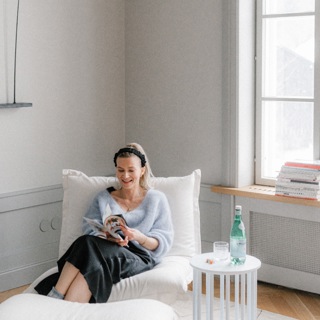
375. The psychology of friendship trios
Navigating friendship in your 20s is already complicated – so what happens when we add a third person into the mix? The group chat might be buzzing, there’s always someone to talk to, and belonging to...
15 Tammi 40min

374. The psychology of regret
In our 20s especially, the fear of regret can seem like every choice has the potential to ‘ruin’ our future - the degree we picked (or didn’t), the person we stayed with, the move we were too scared t...
12 Tammi 25min

373. Why rest makes us feel so guilty
Modern life has a way of making rest feel suspicious. You can be exhausted, finally take a break, and still hear that nagging voice that you should be doing something more. Somewhere along the line, d...
11 Tammi 32min

372. How to rediscover your personality
So many of us are coming to the realisation that we don't really know who we are anymore. We spend more time consuming other people's lives and personalities through a screen, than actually living out...
8 Tammi 40min

371. The psychology of success
What makes some people successful and others, not? Is it a singular trait, habits, or just luck? In this episode, we break down the psychology and research behind success and what drives successful in...
5 Tammi 36min

370. Your year for doing less and achieving more
At the start of every year, I choose a theme - not just goals, but a guiding philosophy. For 2026, that theme is doing less and achieving more. In this episode, we explore why focus beats busyness, wh...
1 Tammi 31min

369. Answering your biggest 20s dilemmas ft. the listeners
In our final guest episode for the year, we're hearing from the listeners! I asked you all to call in with the biggest dilemmas you've had in your 20s; questions you want answered, or just situations ...
29 Joulu 202542min

368. How to find your dream career in your 20s ft. George Appling
Find your dream job in your 20s is no easy feat, in fact your dream job probably doesn't exist, but you CAN determine what kind of career path is best for you based on your personality. Today we have ...
26 Joulu 202543min






















